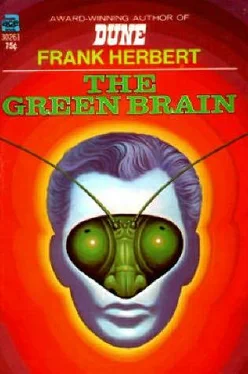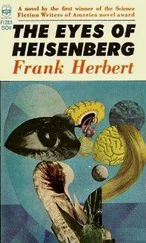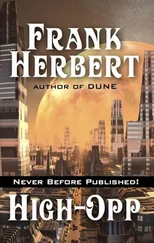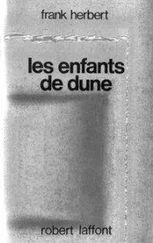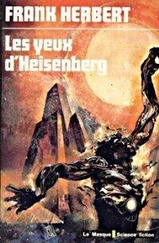THE GREEN BRAIN
by
FRANK HERBERT
HE LOOKED pretty much like the bastard offspring of a Guarani Indio and some backwoods farmer’s daughter, some sertanista who’d tried to forget her enslavement to the encomendero system by “eating the iron”—which is what they call lovemaking through the grill of a consul gate.
The type-look was almost perfect except when he forgot himself while passing through one of the deeper jungle glades.
His skin tended to shade down to green then, fading him into the background of leaves and vines, giving a ghostly disembodiment to the mud-gray shirt and ragged trousers, the inevitable frayed straw hat and rawhide sandals soled with pieces cut from worn tires.
Such lapses grew less and less frequent the farther he emerged from the Parana headwaters, the sertao hinterland of Goyaz where men with his bang-cut black hair and glittering dark eyes were common.
By the time he reached bandeirantes country, he had achieved almost perfect control over the chameleon effect.
Now, he was out of the wilder jungle growth and into the brown dirt tracks that separated the parceled farms of the resettlement plan. In his own way, he knew he was approaching one of the bandeirante checkpoints, and with an almost human gesture he fingered the cedula de graicias al sacar , the certificate of white blood, tucked safely beneath his shirt. Now and again, when humans were not near, he practiced aloud the name that had been chosen for him—“Antonio Raposo Tavares.”
The sound emerged a bit strident, harsh on the edges, but he knew it would pass. It already had. Goyaz Indios were notorious for the strange inflections of their speech. The farm folk who’d given him a roof and food the previous night had said as much.
When their questions had become pressing, he’d squatted on their doorstep and played his flute, the qena of the Andes Indian, which he carried in a leather purse hung from his shoulder. The gesture of the flute was a symbol of the region. When a Guarani put flute to nose and began playing, that said words were ended .
The farm folk had shrugged and retired.
His trudging progress, the difficult and carefully mastered articulation of legs, had brought him now into an area of many humans. He could see red-brown rooftops ahead and the white crystal shimmering of a bandeirante tower with its aircars alighting and departing. The scene held an odd hive-look.
Momentarily, he found himself overcome by the touch of instincts that he knew he must master. These instincts could make him fail the ordeal to come. He stepped off the dirt track, out of the path of passing humans, and went through the regimen that united his mental identity. The resultant thought penetrated to the smallest and most remote units of his person: We are greenslaves subservient to the greater whole .
He resumed his way toward the bandeirante checkpoint. The unifying thought lent him an air of servility that was like a shield against the stares of humans trudging past all around. His kind knew many human mannerisms. They had learned early that servility was a form of concealment.
Presently, the dirt track gave way to a two-lane paved market road with footpaths in the ditches on both sides. This, in turn, curved alongside a four-deck commercial transport highway where even the footpaths were paved. Now there were groundcars and aircars in greater numbers, and the flow of foot traffic increased.
Thus far he’d attracted no dangerous attention. The occasional snickering side-glance from natives of the area could be safely ignored. He watched for probing stares. These could hold peril, but he detected none.
Servility shielded him.
The sun stood well along toward mid-morning and the day’s heat had begun to press down on the earth, raising a moist hothouse stink from the dirt beside the pathway, mingling it with the perspiration odors of humanity around him. There was a sourness to the smell that made every part of him long for the sweetly familiar odors of the hinterland. And the lowland smells carried another harmonic that filled him with an inaudible humming of unease. Here were greater and greater concentrations of insect poisons.
Humans were all around him now, close and pressing, moving slower and slower as they approached the checkpoint bottleneck.
The forward motion stopped.
Progress resolved itself into shuffle and stop, shuffle and stop…
Here was the critical test and no avoiding it. He waited with something akin to an Indian’s stoic patience. His breathing had grown deeper to compensate for the heat. He adjusted it to match that of the humans around him, suffering the temperature rise for the sake of blending into his surroundings. Andes Indians didn’t breathe deeply here in the lowlands.
Shuffle and stop.
Shuffle and stop.
Now he could see the checkpoint.
Fastidious bandeirantes in sealed white cloaks with plastic helmets, gloves and boots stood in a double row within a shaded brick corridor leading into the town. He could see sunlight hot on the street beyond the corridor, people hurrying away there after passing this gantlet.
The sight of that free area beyond the corridor sent an ache of longing through all the parts of him. The suppression warning flashed out instantly on the heels of that instinctive reaching-emotion.
No distraction could be permitted here. Every element of him had to be alert to withstand the pain.
Shuffle and… he was into the hands of the first bandeirante, a hulking blond fellow with pink skin and blue eyes.
“Step along now! Lively now!” the fellow said.
A gloved hand propelled him toward two bandeirantes standing on the right side of the line.
“Name?” That was a voice behind him .
“Antonio Raposo Tavares,” he rasped.
“District?”
“Goyaz.”
“Give that one an extra treatment,” the blond giant called. “He’s from the upcountry for certain.”
The two waiting bandeirantes had him now, one jamming a breather mask over his face, the other dropping a plastic bag over him. A tube trailed from the bag and out toward the sound of machinery somewhere in the street beyond the corridor.
“Double shot!” one of the bandeirantes called.
Fuming blue gas puffed out the bag around him, and he inhaled a sharp, gasping breath through the mask, astonished at that unanimous demand for poison-free air.
Agony!
The gas drove through every multiple linkage of his being with needles of pain.
We must not weaken , he thought. Hold fast .
But it was a deadly pain, killing. Linkages began to weaken.
“Okay on this one,” the bag handler called.
The bag was slipped off, breather mask pulled away. Hands propelled him down the corridor toward the sunlight.
“Lively now! Don’t hold up the line.”
The stink of the poison gas lay all around him. It was a new one—a dissembler. They hadn’t prepared him for this poison. He’d been ready for the radiations and the sonics and the old chemicals… but not for this.
Sunlight beat down on him as he emerged from the corridor into a street. He veered left through a passage lined by fruit stalls, merchants bartering with customers or standing fat and watchful behind their displays. In his extremity, the fruit beckoned with the promise of sanctuary for a few parts of him, but the integrating totality of him knew the emptiness of that thought. He fought off the lure, shuffled fast as he dared, dodging past customers, through the knots of idlers.
“You like to buy fresh oranges?”
An oily dark hand thrust two oranges into his face.
Читать дальше
